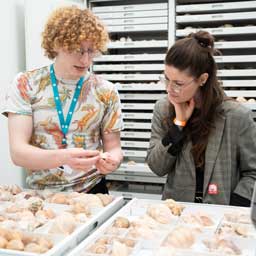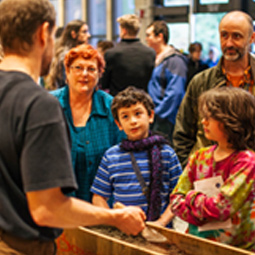"We are working on a new project plan that includes where and how you sample, and an updated parameter list. There are some chemicals we won’t be looking for anymore because they have been undetected for many years and are not corresponding with the community shifts. Then there are things we haven’t measured, like nutrients and dissolved oxygen levels in sediments, which we want to add in order to see if there is a better correspondence to changes we have seen.
We went to different groups involved in the Puget Sound Ecosystem Monitoring Program and presented them with an overview of the data and our plans going forward. There are so many groups out there looking at different components of the ecosystem—we want to make changes in line with their work. It doesn’t happen in a vacuum."
We’ve been sending our samples to the Burke for ten years now. It [...] stretches the scientific information our project can provide.
Maggie Dutch, Marine Sediment Monitoring Team lead, WA State Department of Ecology Marine Monitoring Unit
Maggie Dutch is the Marine Sediment Monitoring Team lead for the WA State Department of Ecology Marine Monitoring Unit, which provides sediment samples analyzed by Curator of Invertebrate and MicroPaleontology Liz Nesbitt in the Burke’s Puget Sound Foram Research Lab.
Excerpted from "In Our Own Words," the Burke Museum 2015 Annual Report.


